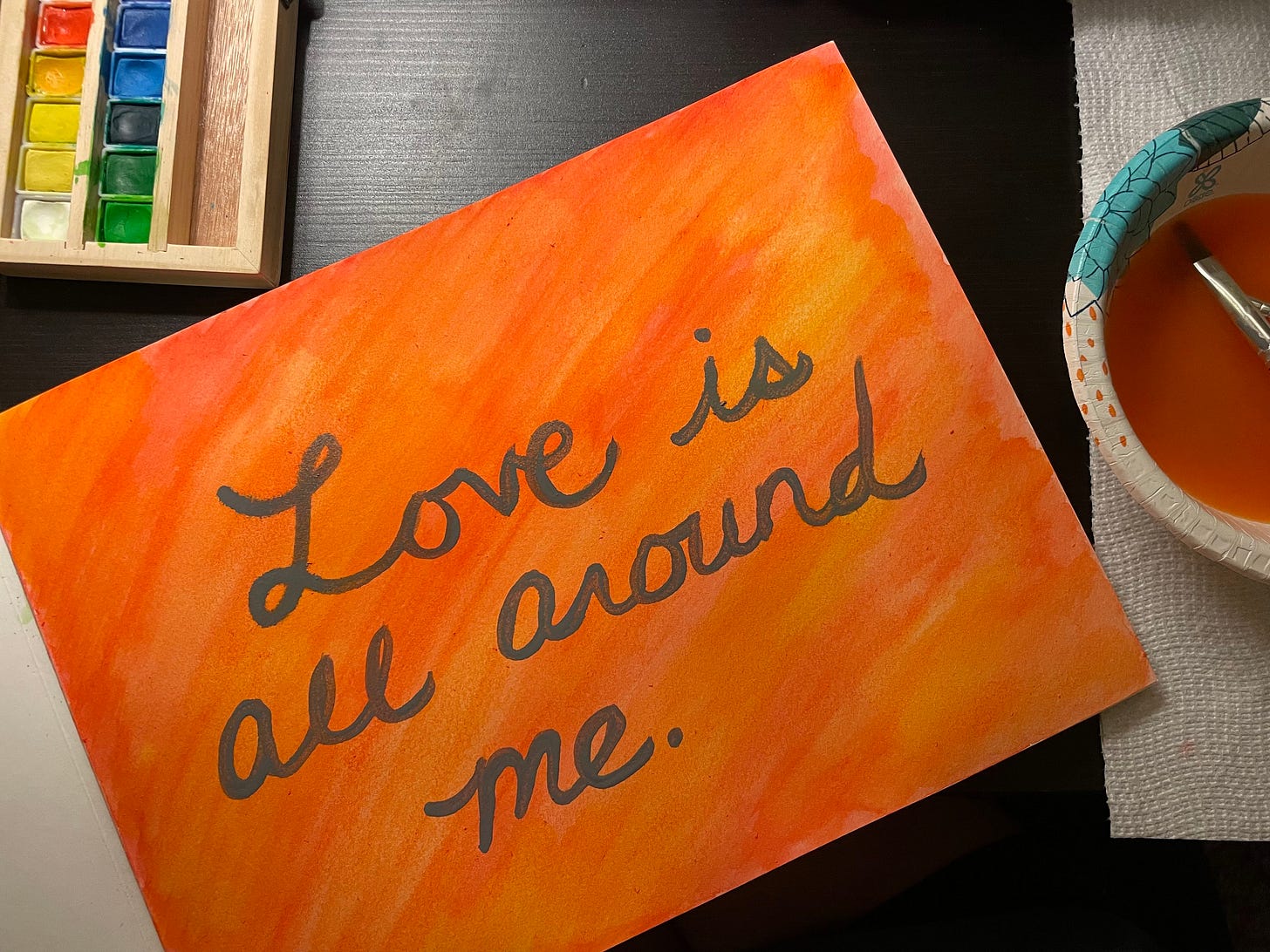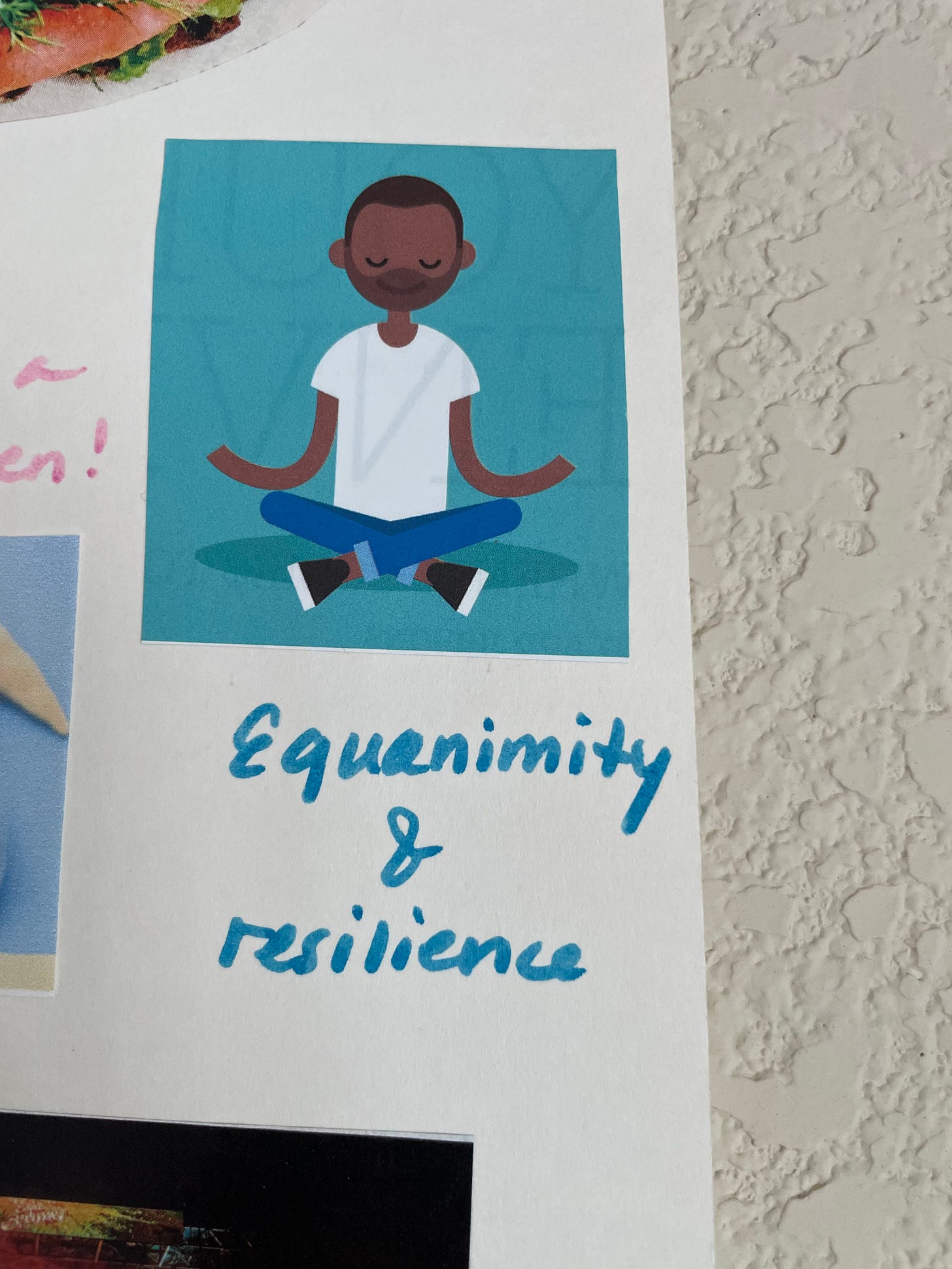
I wouldn’t consider myself a liar. But I also know how much energy I’ve spent on concealing the truth. On assuming a façade and portraying who I “should” be, versus unapologetically expressing myself — aligning my words and actions (what’s presented externally) with my needs and values (what lies beneath the surface).
This tendency has manifested in countless ways. Agreeing to do something out of a sense of obligation. Not voicing my dissent or honest thoughts. Trading others’ comfort for my own discomfort.
It’s been exhausting.
And I wonder: Why are we like this? Where — and how — did we learn to hide ourselves?
These questions have guided countless conversations over the years, with friends, therapists, acquaintances. I’ve learned that we all want to operate from our fullest truth, but societal expectations and ingrained conditioning block us from doing so.
The fear and shame of revealing the messier parts of ourselves hold us back.
Allowing ourselves to be seen is scary. However, in the right company, disclosing our vulnerabilities shows us we’re not alone. Opening up allows us to connect more deeply with others. It reminds us of our common humanity — of our place in this world as people who are ultimately figuring it out as we go, in search of the same things: love, joy, peace, purpose, safety.
A Burden Too Heavy To Carry Alone
(Before I proceed any further, I just want to remind everyone that this is not an invitation for unsolicited advice or opinions. I’m just here to candidly share a part of my story.)
I haven’t talked about this at length here, but I live with a GI-related chronic illness and widespread chronic pain (the latter of which has, blessedly, improved significantly this year).
Since 2019, I’ve been on an ongoing quest to manage — and, hopefully, overcome — these issues, visiting countless specialists, trying an endless amount of treatments, and making numerous lifestyle changes. There’s a lot I want to share about my journey, but I’m still in the process of piecing together the events of the last several years. Of making peace with this reality that I’ve worked so hard to evade.
At the beginning of 2024, I decided my guiding word for the year would be “truth,” in all areas but especially regarding my health.
I’ve slowly opened up to more people — especially those closest to me — about how my symptoms affect me physically, and the toll they’ve had on my mental well-being. But I often struggle to fully open up to strangers or friends I haven’t gotten to know as well yet, held back by shame and a fear of judgment.
It amazes me, though, how much space for understanding unfolds when I’ve pushed myself to have the difficult conversation about my health. More often than I’d initially expected, people have opened up about health issues they personally deal with, or candidly share pressing struggles they’re facing in their life.
We aren’t going through the same things, but we feel the same emotions: fear, shame, uncertainty, grief, anger.
There’s a deep sense of comfort in knowing, “I’m not alone.” We challenge that “I’m not lovable” voice with the truth: “I am lovable, and this experience doesn’t take that away from me.”
A harsh reality I’ve had to accept with my health is that bottling things up — though more comfortable in the short term — hasn’t facilitated healing, on a physical or emotional level. Nor has it allowed me to build the depth and transparency I’ve hoped for in many relationships.
Only when I’ve had the aforementioned conversations — and reclaimed my narrative through writing and other creative passions (art, poetry, dance) — have I felt a lightness and ease within my own being. The physical symptoms might not magically disappear, but the story I tell myself about them takes on an air of compassion, chipping away at the walls of shame and self-blame.

I firmly believe in the mind-body connection, and find solace in the endless amounts of research that confirm our capacity to physically heal when we work to dismantle emotional blocks (limiting beliefs, unresolved trauma, etc.).
Therapy and other mind-body practices (meditation, yoga, EFT tapping) have been huge in my healing journey, especially the past several months when I’ve devoted time to them more consistently.
One of the hardest aspects of my own journey has been letting go of timelines of when things “should” happen (i.e., “I should have overcome all of this by now,” “I should be further along in my career,” “I should, I should, I should…”). I’m learning to trust in the timing, to keep showing up for myself and doing what works. I believe that a solid foundation of resilience and equanimity is gradually coming together.
Our Stories Hold The Power To Heal
I recently read Elizabeth Lesser’s book, Broken Open: How Difficult Times Can Help Us Grow. The author reminds us that we will all face difficult, unimaginable circumstances in life. It’s a part of the human condition. But we have the power to determine who we want to be as a result of these situations.
We can choose to retreat back into what’s comfortable (yet detrimental), or allow ourselves to be “broken open” — fully feeling the pain so we can make space for the growth, love, strength, and joy that lie on the other side.
As I type these words, I see how much I’m currently in the process of being “broken open.” It’s been terrifying to lean into these buried truths, to feel their emotional weight and voice them aloud. But it’s also brought so much meaning and beauty into my life. New friendships that feel aligned and uplifting. An emerging sense of confidence and self-acceptance. A reassurance that I am safe, and I am enough.
Let this be a reminder that so much lies beneath the surface, and to truly listen to others, as well as our own inner wisdom. To remember that suffering is a part of the human experience, and it’s only through the hardships that we can come to appreciate the beauties of our existence: a long hug from a loved one, a captivating sunset, the wonderful feeling of flow when immersed in a passion project.
I’d like to end with a powerful sentiment my therapist shared: “This is a part of your story, but not all of it.”
Regardless of what you’ve gone through (or are going through), remember that it doesn’t define who you are as a person. It’s a part of your lived experience — one that can help you learn and grow into a stronger version of yourself — but there’s so much more that makes you… you.
Wishing you all safety, love, and ease of well-being.
Until next time,
Brina
💭 Reflection
Which aspects of your life carry feelings of shame? Why do you think these shameful feelings arise, and what narrative(s) do they hold? If you were to challenge these narratives, what would you say?
🎨 Creativity Corner
Podcast: I’ve been a huge fan of
for a while now, finding so much relatability in her as a fellow South Asian woman living with chronic illness. I’ve found a lot of encouragement and validation in her podcast, Thriving Together with Nitika Chopra.YouTube video: Ecstatic dance, a practice I discovered last year, has infused my life with joy and freedom. Follow along with this pre-recorded version to feel soothed, uplifted, and reconnected to your body.
Music: I recently discovered Malte Marten, a musician who creates profound sounds with the handpan. Listen to his music when you need to mellow out and detach from life’s worries.
Real talk: “The Different Ways You Abandon Yourself” (I feel attacked, but also very seen)





Achieving the work you've put into yourself and being able to write this piece, at your age--You're YEARS ahead of most of us in creativity, and helping our physical and mental selves to heal and prosper. Watch out earth!
Thank you for your kindness and support, it means so much to me! ♥️